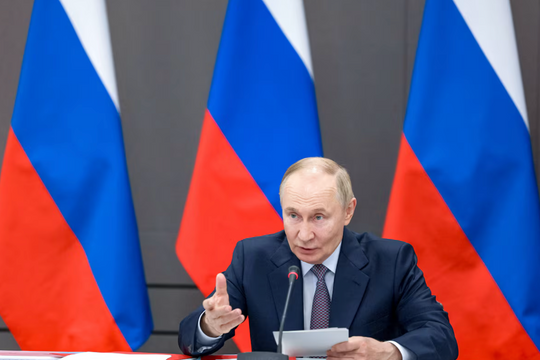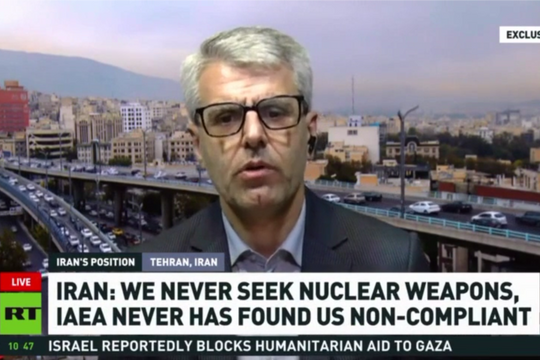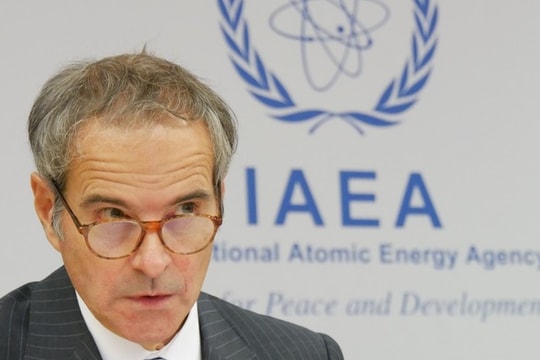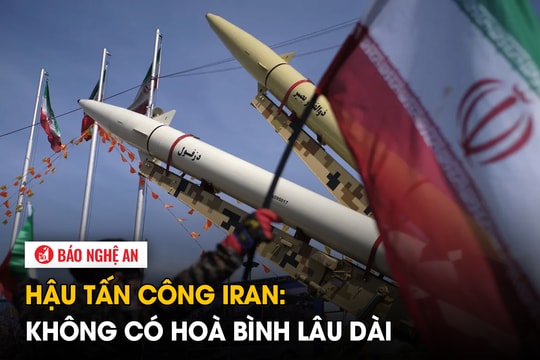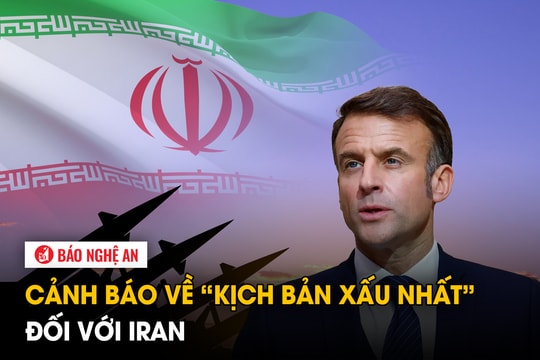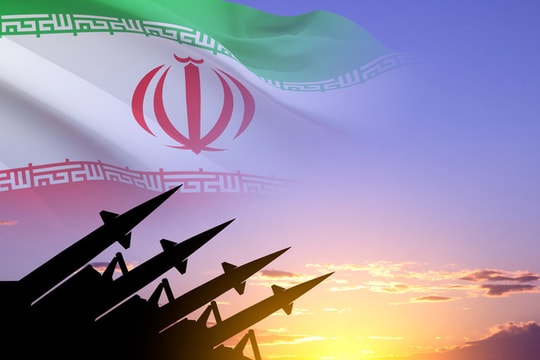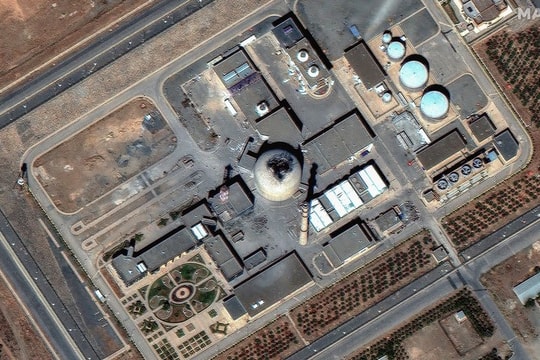What breakthrough for the Korean peninsula?
(Baonghean) - North Korea's holding of the Party Central Committee Conference in the final days of 2019 - the deadline for the US to make concessions, sent a signal surrounding the future of nuclear negotiations.
Notable events
In the end, the “Christmas gift” that North Korea had promised never came, and neither did any US concessions to North Korean threats. There was no further progress on the Korean Peninsula in the final days of 2019. Instead, there was an extraordinary meeting of the Central Committee of the Workers’ Party of Korea to discuss “important policies for a new victory in the revolution.”
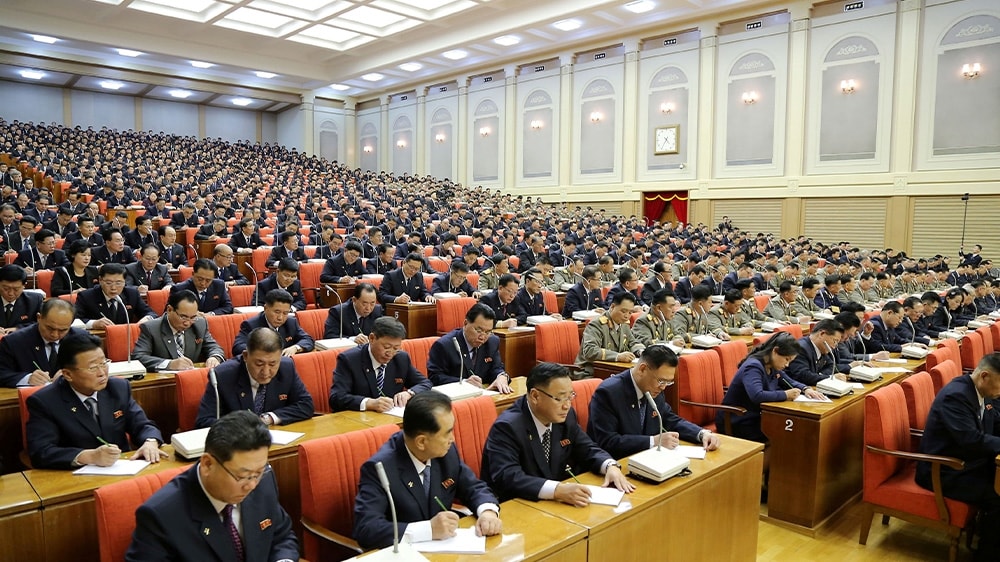 |
| The meeting of the Central Committee of the Workers' Party of Korea took place a week after the meeting of defense officials. Photo: KCNA |
According to the Korean Central News Agency (KCNA), North Korean leader Kim Jong-un chaired the meeting on December 28. KCNA added: "Determining the direction of the Workers' Party of Korea and the country and important policies for a new victory in our revolution under the current situation were discussed on the first day of the meeting." KCNA did not provide any other specific information but confirmed that the meeting would continue. According to assessments, this session is likely to last for many days.
The meeting is seen as the latest notable move by North Korea after Pyongyang announced earlier this month that it would hold a meeting to decide on “important issues”. This has also raised assessments that Pyongyang is capable of making policy decisions, possibly related to the stalled nuclear negotiations with the US. There are also concerns that Pyongyang may resume military escalations such as testing intercontinental ballistic missiles (ICBMs). North Korea has set a deadline for the US to come up with a new proposal to promote the deadlocked nuclear negotiations. Last week, North Korea warned that the deadline was approaching and it was up to Washington to decide what “Christmas gift” the US would receive from Pyongyang. Meanwhile, US President Donald Trump expressed no concern about North Korea’s “Christmas gift” warning, affirming that the US would “deal with it successfully”.
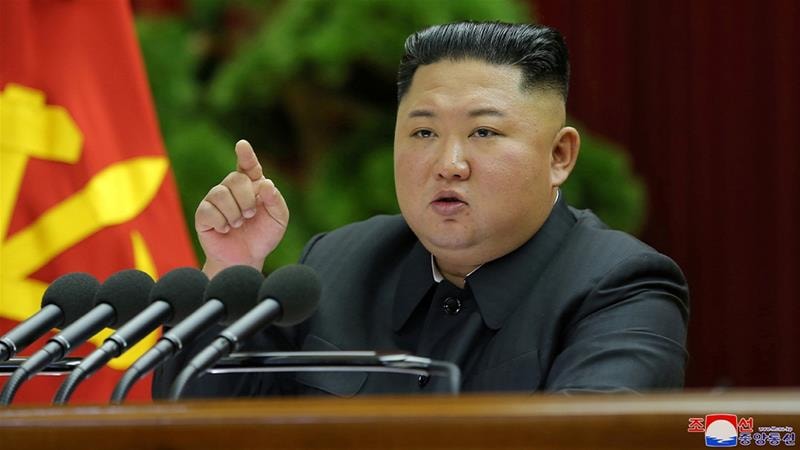 |
| North Korean leader Kim Jong-un may announce his stance on nuclear talks after a party meeting that has lasted for several days. Photo: KCNA |
North Korea still has enough patience?
It can be seen that concerns about the possibility of escalation of tensions to the point of breakdown after North Korea's tough statements can be put aside for now. Now is the time to predict what Pyongyang's upcoming strategy will be? Are they willing to sit down at the negotiating table again and persevere to achieve their goals?
The good news is that North Korea is likely to buy more time for peace. South Korea's Yonhap news agency, citing an unnamed source, said last week that North Korea has reasons to continue nuclear talks with the United States, but it may consider the timing based on its assessment of the political fortunes of US President Donald Trump, who is facing an impeachment trial.
Although the US Senate trial is expected to result in the acquittal of the US President on charges of obstruction of Congress and abuse of power, North Korea may wait until the political foundation of the Trump administration becomes more solid before continuing negotiations, according to the source.
 |
| The personal relationship between US President Donald Trump and North Korean leader Kim Jong-un has not been able to bring about a breakthrough in the issue of denuclearization of the Korean peninsula. Photo: Reuters |
Pyongyang has expressed concern that listing its nuclear weapons, materials and related sites – a key denuclearization step that the US has demanded – could mean exposing them to potential attacks without receiving clear security guarantees from the US. Taking such a step while the fate of the current US government remains unclear would be Pyongyang’s main concern, the source said.
What factors determine success?
Persuading North Korea to give up its nuclear weapons in exchange for the lifting of economic sanctions is the core of the nuclear negotiations. However, it should be noted that economic development is necessary but not the decisive factor in Pyongyang's nod. The evidence is that at the US-North Korea Summit in Hanoi in February, all conditions were almost perfect for the two sides to end decades of confrontation and nuclear threats. But in the end, everything broke down in anger and disappointment. Public opinion criticized North Korea for not wanting to give up its nuclear weapons and only waiting for the US to lift the embargo. In fact, the US side was also at fault in this matter.
President Donald Trump made at least two major mistakes in Singapore during their 2018 bilateral meeting. He did not ask North Korean leader Kim Jong-un to clearly define “complete denuclearization.” The US believed that meant North Korea unilaterally denuclearizing. Meanwhile, North Korea believed that the US first had to eliminate the “nuclear threat” to its country. This disagreement continued into 2019 and is at the heart of the current stalemate.
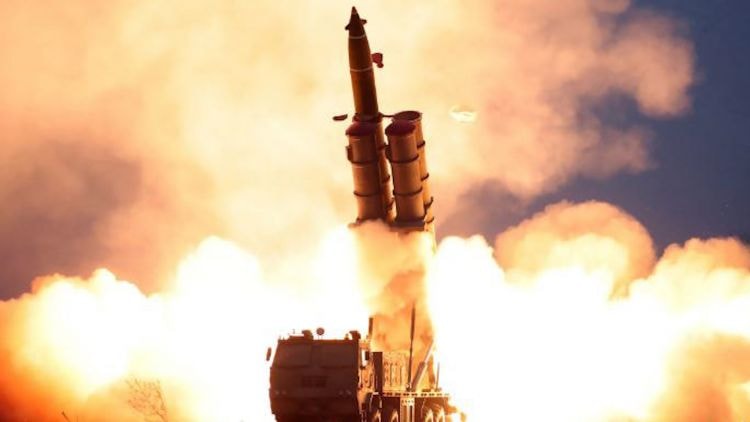 |
| North Korea's super missile system. Photo: KCNA |
In addition, the US President also pledged to end joint military exercises between the US and South Korea, a promise that his military could not fulfill. The exercises were scaled down but not completely eliminated, because the US-South Korea alliance needed to conduct them to maintain combat readiness. That is the main reason why North Korea feels betrayed and no longer obliged to keep its promise. In Hanoi, US President Donald Trump promised “a bright future” for North Korea, that is, the prospect of economic cooperation, only if they completely give up their nuclear arsenal, is still not enough. The core of North Korea’s interests is still security, and this must be verified. Until there are clear guarantees, Washington’s promises of “big deals” and investments will remain vague and risky gambles in Pyongyang’s eyes.

